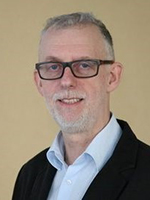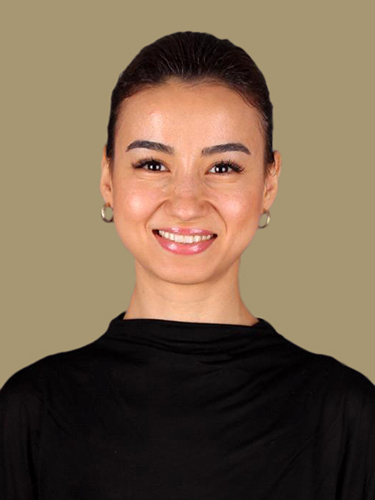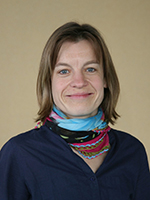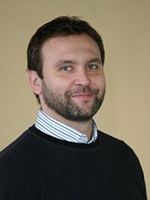Eduversal 2017 | Eduversal 2018 | Eduversal 2019 | Eduversal RRR | Eduversal 2020 | Eduversal 2021
This year’s Professional Education and Training will be held from 24 to 28 June 2019 in Jakarta, Indonesia, under the motto “Teaching is a Learning Profession”. Taking this into account, all Global CPD services are built around you – your goals, your needs, your time frame and your environment.
Proficiency in CLIL in Primary Science

The course is primarily designed for teachers who have successfully completed the introduction course. It is based on project-like sessions when participants make primary lesson plans for the year in groups, present their ideas and deliver small sections of their plans.
Throughout the course, there will be a progression from trainer-led tasks to project-like sessions, where participants present their ideas and deliver small sections of their plans. In addition, there will be a move from whole group sessions to working in groups based on school subjects and later even these will be broken up into pairs/threes to allow participants to work with primary course books, which are relevant for them.
Effective Classroom Management for EMI Teachers

This course aims to introduce teachers of all subjects, including primary, secondary and higher education, to principles of classroom management practice as a key element in creating successful learning environments. It delivers detailed information and practical skills and strategies important to running an effective and well managed classroom.
It covers relevant classroom management frameworks and key theories, which underpin classroom management. Key preventative practices and intervention strategies are introduced along with various perspectives to student behaviour within the context of classroom management leading to increased student engagement in learning.
Lesson Planning for EMI Teachers

This course aims to introduce teachers of all subjects to the skills essential to successfully plan and teach motivating lessons, including how to develop aims with measurable outcomes and direct implementation of methodological teachings in lesson planning, including context, aims, sequential lesson planning, and evaluation.
The course is designed to assist participants in creating more effective lesson plans by aligning their plans with their students’ learning styles and common core requirements. The sessions will enable them to develop lesson plans that are both efficient and effective. The participants will be able to plan their lessons in line with both today’s high standards and the differentiated learning styles of the learners.
Blended Learning

This course is intended to help teachers develop an understanding of blended learning, including what it is and how it benefits students. Through many examples, they will consider how to create blended learning experiences for their students and what to address when designing these experiences.
In addition, they will see how technology tools can foster collaboration while delivering engaging instructional content. They will also learn strategies for assessing students and managing a blended learning classroom.
Pronunciation and Phonetics for EMI Teachers

This course is designed to raise awareness of the key elements of English pronunciation for teachers of all subjects. The course is practice-driven and adopts the ‘learning by doing’ approach, as it involves participants in experiencing and reflecting on various classroom activities that make learning enjoyable and effective.
As an integral part of the course, participants are asked to prepare and deliver a presentation related to their subject area. This provides them with an occasion to put their improved pronunciation skills into practice. Throughout the course participants will also develop their cooperative skills through participation in classroom activities in pairs or small groups and through peer feedback.
Testing and Assessment for EMI Teachers

This course is intended to enable participants to understand the principles and concepts of the different types of educational testing and assessment. The participants will understand the processes of evaluation, measurement and testing in a better a manner. Thus, they will be able to plan and conduct evaluation and testing on the basis of analytical principles and practices.
Throughout the course, the participants will develop their knowledge and skills in constructing, analysing and improving assessments that adequately appraise general or specific instructional objectives. They will also be able to construct, critique and interpret different types of tests and integrate assessment results to student performance evaluation.
Leadership & Management

Were you promoted from classroom teaching to administration without any training? Or would you like to polish up your management skills? This course is designed as the first part of a Leadership and Management module.
This course helps the participants manage difficult situations they confront at their schools by giving them new approaches and showing ways of how to make managing a school a rewarding experience.
Principles of Test Design

This is an introductory course of test design, covering many test techniques at a superficial level, with ways to compare strengths of different techniques and select complementary techniques to form an effective testing strategy.
The participants will have the opportunity to deepen and expand their understanding of the Heuristic Test Strategy Model for specification analysis and risk and concept-mapping tools for test planning.
Things to Keep in Mind
This initial stage of setting goals for better quality education at your institutions starts with a number of input sessions for inspiration which are followed by daily practical sessions of microteaching or presentations to provide participants an opportunity to perk up their teaching and mentoring skills.
The main objective of these microteaching sessions is to provide an environment for practice-based teaching and to instill self-evaluative skills. This is a training technique, which provides teachers an opportunity to elevate their instruction by improving the various simple tasks called teaching skills.
Certain aspects of teaching have great impact on the learning process and can lead to improved learning experiences for learners. Thus, when we help teachers develop their awareness, knowledge and skills through systematic, continuous professional development, student learning improves.
We are well aware that no initial training can provide teachers with the necessary knowledge and skills for a lifetime of teaching. Teachers must work throughout their professional lives to develop their professional expertise and keep up with new information that is relevant to their field of study.
Alongside conducting classroom observations to support stronger subject oriented teaching methods and strategies, we also consider the atmosphere of the institutions; i.e. behaviours in corridors, cafeteria etc, since these have a huge impact on teacher motivation and classroom management.
At Global-CPD, we believe that there is no one correct teaching method. We value traditional, core teaching methods as well as newer student-centered, constructivist approaches. The best choices are always made after the careful analysis of the specific conditions and the intended learning outcomes.
While observing and assessing these components of effective teaching, our fundamental aim of maximizing student learning will always be at the forefront. Finally, you should know that we eagerly look forward to working with you to create a vibrant community of ‘teachers-as-learners’.
Osman Bedel, Academic Coordinator
Our Training Team:
Christof, Proficiency in CLIL in Primary Science

Christof has been training teachers for over 28 years. His experience includes pre-service teacher training with US Peace Corps in Poland, teacher training college and university, and also in-service teacher training with teacher-training college mediated courses for practising teachers. In other words, his experience includes teaching people aged 20-50, Poles, Americans, and his Erasmus students.
At his university he co-authored and co-organized an international project for European would-be teachers from France, Spain and Finland. Currently, he is in charge of an extramural BA program of English studies, dealing with student matters, doing budgets, hiring teachers, and helping junior teachers.
Bahar, Testing and Assessment for EMI Teachers

Bahar holds a BA degree in French Language and Literature with honors cum laude and has been an Erasmus Exchange Program student for a year at Jean-François Champollion University in France, where she excelled her language and intercultural skills. After she has done a CELTA, she has taught English in various schools around Turkey.
Bahar is currently serving as an instructor of English Language and a coordinator in the School of Foreign Languages at Altinbaş University in Istanbul. She is responsible for the curriculum orientations of in-service teachers, and is also working closely with the testing department of the university, writing, proofreading, implementing and evaluating prep school tests and exams. Bahar is specialised in Differentiated Instructions and gives seminars and workshops in the related field at the university. She is also interested in theatre and music, especially playing the guitar and is quite competent at using her drama skills while teaching English.
Charles, Lesson Planning for EMI Teachers

Charles has been working in the ELT field for over nine years, both teaching ESL and teacher training in several countries around the world. Throughout his teaching career, Charles has been fortunate to teach all levels, both young learners and adults. However, over the last few of years, his focus has been drawn more towards teaching young learners, both elementary and secondary school. Consequently, he is heavily involved in the Young Learners Department at the British Council in Prague, where he lives and works.
Resulting from his vast experience, Charles has developed a passion for these age groups and hopes to be able to share his passion for YLT through every training course which he leads. Being a part of the Global CPD training courses and team allows Charles to work with similar trainers that share the same passion for ELT teaching and ELT teacher training.
Helen, Pronunciation and Phonetics for EMI Teachers

Helen has completed her BA degree in Politics and Philosophy at Cardiff University and during this period she has also studied at San Francisco State University for a year. Besides completing a CELTA program, she has also attended DipTESOL programs on Language teaching, teacher development, phonological theory and learner analysis at Trinity College London.
Currently, she has been teaching for International House Bydgoszcz, Poland for four years and is the current Assistant Director of Studies. This is her sixth year as an ESL teacher, so she has a range of experience with different groups, abilities, and ages including business and exam classes. She has worked as a teacher trainer in Austria, Poland and Iraq. Last year, she completed her diploma in TESOL and would like to specialise in Special Educational Needs teaching in the future.
Katerina, Leadership & Management

Katerina studied English and Russian language and literature at Masaryk University in Brno, Czech Republic. Previously, she worked as a freelance English teacher with International House Brno. Currently, she has been working as a state secondary school English teacher for three years.
She is a CELTA-qualified teacher and also an experienced teacher trainer, having taught in Turkey (CTS-Primary), Kazakhstan (CLIL) and the Czech Republic (primary/ secondary/ exams tutoring). Katerina regularly supervises trainee teacher from the pedagogical faculty of the Masaryk University. Katerina is also a Cambridge Speaking examiner with British Council.
Matthew, Effective Classroom Management for EMI Teachers

Mat is a teacher and teacher trainer originally from Southend-on-Sea in the UK but now based in the Czech Republic. He has worked in Spain and Turkey and on residential summer schools in England. Matthew holds the Cambridge DELTA and currently works as the EAL Coordinator at the International School in Brno.
In addition to teaching, he provides both in-house and external training seminars and regularly presents at conferences. He also works for International House (IH) as a tutor on various teacher training courses including the IHCYLT (Certificate for teaching Young Learners and Teens).
Martin, Blended Learning

Martin has been teaching EFL since 2001 and training teachers since 2007. He holds an MA degree in English philology and psychology and works as a teacher and trainer for students and teachers. He is currently teaching at a public high school in Warsaw, Poland where he teaches general English, CLIL and manages a group of teachers of foreign languages.
Since September 2016 he is a methodology advisor for Warsaw public school teachers of English. He also runs his private school Meet Up where his clients are teenagers as well as corporate employees. He is an avid Moodler and e-teacher enjoying working with students from various backgrounds. Recently he has been involved in teaching about global issues through English.
Rebecca, Principles of Test Design

British-born but now resident in Spain, Becky has been working as a language teacher for over 25 years. She has worked in several countries (Britain, Spain, France, Portugal, Albania, Macedonia, Indonesia and Venezuela), in a full range of educational establishments as both teacher and trainer. Currently, her principal job is as Senior Teacher in a language academy in Spain where she teaches all ages, across all levels, and support other teachers.
In addition, since 2010, Becky has also been regularly involved in training teachers in language and methodology and, more recently, she has delivered CLIL courses in the Mathematics, Engineering, Agricultural and Science faculties of the University of Extremadura in Spain and the Polytechnic of Portalegre in Portugal. Since 2016, she has been collaborating with Global CPD on various international projects. Becky has a BA(Hons) in Modern Languages, a Postgraduate Certificate in Education, a CELTA and is currently studying a second degree BSc(Hons) in Physics and Mathematics.






